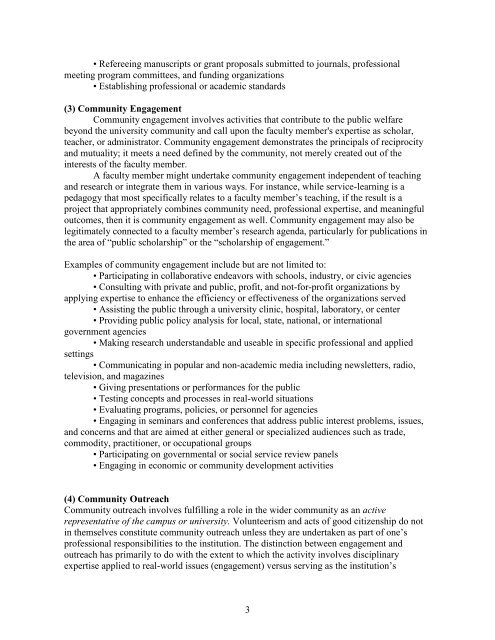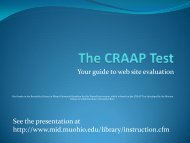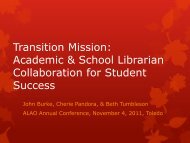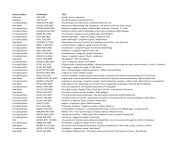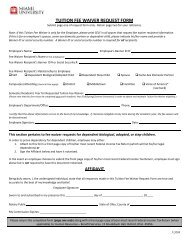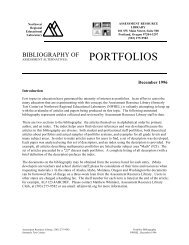Defining, Documenting, and Evaluating Service A ... - Miami University
Defining, Documenting, and Evaluating Service A ... - Miami University
Defining, Documenting, and Evaluating Service A ... - Miami University
Create successful ePaper yourself
Turn your PDF publications into a flip-book with our unique Google optimized e-Paper software.
• Refereeing manuscripts or grant proposals submitted to journals, professional<br />
meeting program committees, <strong>and</strong> funding organizations<br />
• Establishing professional or academic st<strong>and</strong>ards<br />
(3) Community Engagement<br />
Community engagement involves activities that contribute to the public welfare<br />
beyond the university community <strong>and</strong> call upon the faculty member's expertise as scholar,<br />
teacher, or administrator. Community engagement demonstrates the principals of reciprocity<br />
<strong>and</strong> mutuality; it meets a need defined by the community, not merely created out of the<br />
interests of the faculty member.<br />
A faculty member might undertake community engagement independent of teaching<br />
<strong>and</strong> research or integrate them in various ways. For instance, while service-learning is a<br />
pedagogy that most specifically relates to a faculty member’s teaching, if the result is a<br />
project that appropriately combines community need, professional expertise, <strong>and</strong> meaningful<br />
outcomes, then it is community engagement as well. Community engagement may also be<br />
legitimately connected to a faculty member’s research agenda, particularly for publications in<br />
the area of “public scholarship” or the “scholarship of engagement.”<br />
Examples of community engagement include but are not limited to:<br />
• Participating in collaborative endeavors with schools, industry, or civic agencies<br />
• Consulting with private <strong>and</strong> public, profit, <strong>and</strong> not-for-profit organizations by<br />
applying expertise to enhance the efficiency or effectiveness of the organizations served<br />
• Assisting the public through a university clinic, hospital, laboratory, or center<br />
• Providing public policy analysis for local, state, national, or international<br />
government agencies<br />
• Making research underst<strong>and</strong>able <strong>and</strong> useable in specific professional <strong>and</strong> applied<br />
settings<br />
• Communicating in popular <strong>and</strong> non-academic media including newsletters, radio,<br />
television, <strong>and</strong> magazines<br />
• Giving presentations or performances for the public<br />
• Testing concepts <strong>and</strong> processes in real-world situations<br />
• <strong>Evaluating</strong> programs, policies, or personnel for agencies<br />
• Engaging in seminars <strong>and</strong> conferences that address public interest problems, issues,<br />
<strong>and</strong> concerns <strong>and</strong> that are aimed at either general or specialized audiences such as trade,<br />
commodity, practitioner, or occupational groups<br />
• Participating on governmental or social service review panels<br />
• Engaging in economic or community development activities<br />
(4) Community Outreach<br />
Community outreach involves fulfilling a role in the wider community as an active<br />
representative of the campus or university. Volunteerism <strong>and</strong> acts of good citizenship do not<br />
in themselves constitute community outreach unless they are undertaken as part of one’s<br />
professional responsibilities to the institution. The distinction between engagement <strong>and</strong><br />
outreach has primarily to do with the extent to which the activity involves disciplinary<br />
expertise applied to real-world issues (engagement) versus serving as the institution’s<br />
3


